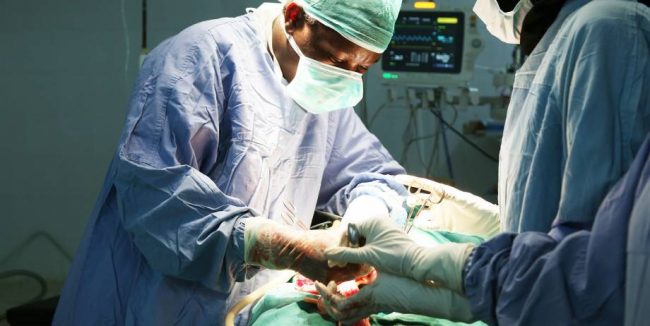According to Dr. Vitalis Etim, a Gynaecologist, Obstetric Fistula “is an opening between the bladder and the vagina or between the rectum and the vagina, which usually presents as incontinent of urine or faeces through the vagina.” In order words, the person passes urine and or faeces involuntarily through the vagina.
Speaking to the Next Edition, Dr. Etim disclosed that the condition “affects mostly teenagers who get pregnant very early before full development of their pelvis. The main cause is due to prolonged obstructed labour as a result of poorly supervised labour.”
The United Nations has observed May 23, as the International Day to End Obstetric Fistula since 2013. It is meant to raise awareness of the issue and mobilise global support. The theme for this year is “Leaving No One Behind: Let Us Commit to Ending Fistula Now.”
In a statement to mark the day, Executive Director, United Nations Population Fund (UNFPA), Dr. Natalia Kanem said, “Obsteric fistula is one of the most serious and tragic injuries that can occur during childbirth. The condition is silently robbing millions of women and girls of their health, hope and dignity. Yet the condition is almost entirely preventable. Its persistence is a sign of global inequality and an indication that health systems are failing to protect the health and human rights of the poorest and most vulnerable women and girls.”
Read also: One egg per day may keep heart disease away –Study
According to the UN, an estimated 2 million women in sub-Saharan Africa, Asia, the Arab region, Latin America and the Caribbean are living with the injury while some 50, 000 to 100, 000 new cases develop worldwide each year.
Speaking on the Nigerian situation, Dr. Vitalis Etim, said Nigeria has the world’s highest burden of obstetric fistula with about half of the 2 million cases as noted by World Health Organisation (WHO) and the UN. He also disclosed that about 12, 000 new cases are recorded each year in Nigeria while about 400, 000 women are living with obsteric fistula.
Speaking further on the prevalence of the condition in the country, he said that 2 per 1, 000 births result to obstetric fistula adding that it was more prevalent in the Northern part of the country than the South due to early/teenage marriage as a result of their religion and cultural practices.
Obsteric fistula can be prevented or avoided by delaying the age of first pregnancy, the cessation of harmful traditional practices such as female genital mutilation and timely access to obstetric care.
On the treatment of the condition Dr. Etim said, “it is treatable, but takes a lot of physical, psychological and emotional approach thus it usually requires a multi-disciplinary team of professionals to achieve better results.”
According to him, “repair success rate is between 75 – 92% depending on the centre, expertise and time interval between when it occurred and when it is repaired.”
According to the UN, the average cost of fistula treatment including surgery, post operative care and rehabilitation support is about 300 dollars (N108, 300).
The UN believes that the prevention and treatment of obstetric fistula will contribute to achieving Sustainable Development Goal 3, which is ensuring healthy lives; in this case, improving maternal health.











